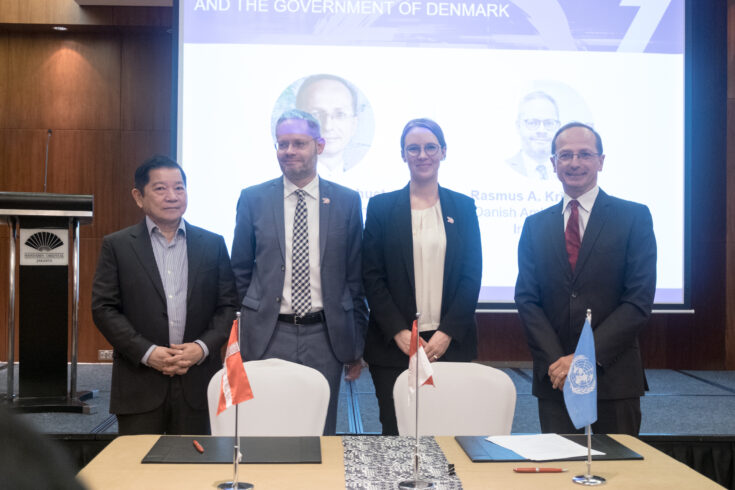 Image shows the signing in 2020 of the partnership to support the development of Indonesia’s first national strategy on circular economy, a new economic model that can further boost growth, create new jobs and address climate change at the same time. The partnership is between The United Nations Development Programme (UNDP), Indonesia’s Ministry of National Development Planning (Bappenas) and the Government of Denmark. (Photo: UNDP)
Image shows the signing in 2020 of the partnership to support the development of Indonesia’s first national strategy on circular economy, a new economic model that can further boost growth, create new jobs and address climate change at the same time. The partnership is between The United Nations Development Programme (UNDP), Indonesia’s Ministry of National Development Planning (Bappenas) and the Government of Denmark. (Photo: UNDP)
A recent article on the Indonesian platform Kompasiana offers a detailed update on the circular economy cooperation between Indonesia and Denmark, highlighting both achievements and remaining challenges.
The two countries’ partnership, formalized under the Strategic Sector Cooperation (SSC) framework in 2018 and extended through 2026, focuses on governance reform, technological solutions, and capacity-building to address Indonesia’s mounting waste problem. Denmark, a global leader in circular economy practices, supports Indonesia with regulatory expertise, private-sector innovation, and targeted pilot projects.
The article names specific Danish companies and organisations involved in the various projects.
Indonesia currently produces over 65 million tonnes of household waste annually, much of which is mismanaged. The partnership aims to introduce Extended Producer Responsibility (EPR), smart waste tracking, and decentralized solutions like waste-to-energy systems. Two island-level demonstration sites—Lombok and Batam—have served as testing grounds for scalable circular economy models.
The partnership also includes academic collaboration under the Denmark-funded IndoCircularWaste project, which develops digital tools and policy models in cooperation with Indonesian universities. Danish companies such as Scanmetal and Enorm Biofactory are piloting innovations alongside local startups.
According to projections by UNDP and Bappenas, transitioning to circular models could increase Indonesia’s GDP by USD 45 billion, create 4.4 million jobs, and significantly cut emissions and resource consumption by 2030.
However, the blog post also notes several challenges, including infrastructure gaps, limited technical expertise, and the need for widespread behavioral change.
The completion of Phase II in 2026 will serve as a key milestone for both countries to assess progress, deepen integration of circular strategies into national planning, and secure long-term financing.
